The Army has many multiple-skill occupational specialties, all of which are classified by the military occupation code. One such specialty is MOS 13J, Army Fire Control Specialist. Army Fire Control Specialist (MOS 13J) is the MOS designation for a member of the United States Army assigned to the Fire Support Team. The specialist helps achieve targets on the battlefield. They are responsible for operating fire-support systems, including artillery, mortars, howitzers, and tanks. This article will provide further information on MOS 13J.
Army Fire Control Specialist MOS 13J is part of Army Enlisted MOS.
MOS 13J Requirements: Qualifications and Skills
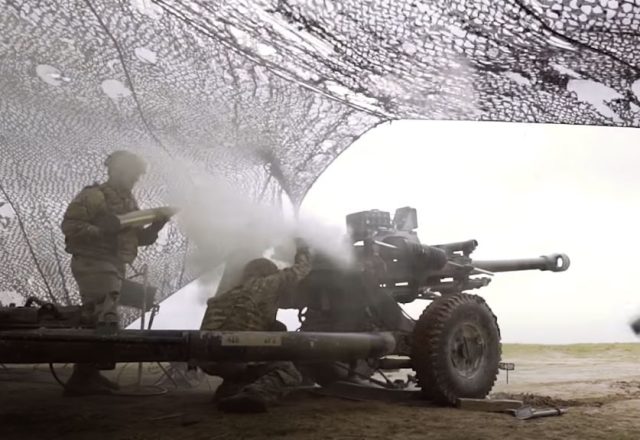
In order to become a MOS 13J, there are a few requirements you need to acquire:
Qualification
Applicants should be GED graduates. ASVAB scores must be valid at the time of application to qualify for consideration. To be a MOS 13J, applicants will undergo rigorous training, including the U.S. Basic Combat Training and Advanced Individual Training (AIT) for 80 weeks. A 93 score on the Field Artillery segment is required.
If you are interested in becoming a Practical Nursing Specialist in the Army, consider pursuing MOS 68C: Practical Nursing Specialist as a military career path. You will have to complete a rigorous training program, but you will emerge as a skilled professional with ample opportunities to make a positive impact on the lives of service members and their families.
Interest in cannon and rocket operations
MOS 13J Soldiers are responsible for firing cannons and rockets from M1 Abrams tanks. Responsibilities include but are not limited to diagnosing malfunctions, target acquisition, timing of rounds against various surfaces, simulating fire control operations in the Command Post (C.P.), and resolving critical issues while under fire.
Physical and mental fitness to perform under pressure
Individuals performing this occupation must be physically fit enough to withstand the movement of an Abrams tank while also meeting or exceeding personnel weight limits. Being able to withstand the noise and large recoil of firing a tank gun is vital to the occupation. 13Js must possess the mental aptitude to make quick decisions during fire missions, as well as be able to accurately read and comprehend maps and fight charts. They can carry their assigned equipment over long distances by foot or in light-armored vehicles off-road. They have to have mental clarity even in stressful situations so they can react quickly if their unit comes under enemy fire.
Ability to multitask
MOS 13J Soldiers are required to perform multiple tasks simultaneously, which includes but is not limited to working in the C.P., diagnosing malfunctions, and performing fire missions. When the tank is in motion, 13Js must be able to change positions quickly in order to view the inside of the tank or detect external threats. The Soldiers have to be able to multitask between trying to figure out what’s happening on the battlefield, maintaining communication with their unit’s leaders, calling in artillery fire without getting too “bogged down” in the process. During the battle, 13Js must perform various duties in order to ensure that their organization achieves its objectives in a timely manner.
Capability to work as a team member
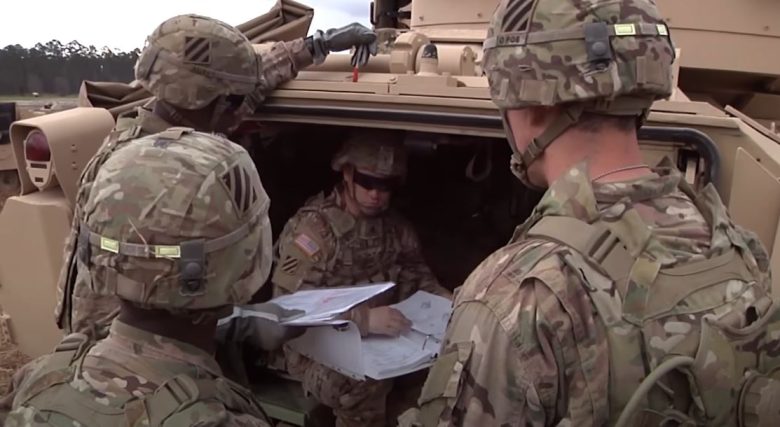
An Army fire control specialist is expected to be well versed in working within small groups proficiently to accomplish missions. They are expected to work efficiently with their team members throughout the day. They are also expected to work well for others, both in private and public. They should be able to understand the importance of working as a member of these teams.
Written communication skills
Soldiers performing this occupation must be able to communicate effectively with their chain of command and mission objectives within a clear manner for multiple audiences. They must be able to write concisely and clearly.
Job Responsibilities
Responsibilities of MOS 13J Army Fire Control Specialists are responsible for the operation of the fire control computers and large database systems, in conjunction with an Army Division’s artillery weapons. They also perform all administrative functions necessary to manage ammunition and weapon inventory items worth $1 million or more. Aside from these duties, they will research, develop and provide terrain intelligence essential to the tactical employment of Army Artillery Units.
MOS 13J Army Fire Control Specialists must have an interest in applied mathematics and an aptitude for algebra, trigonometry, and calculus. They must be able to work long hours and vary their schedules as the situation dictates. Their knowledge of friendly and enemy weapons systems is imperative as they will use this information in their computational work. They will also perform surveillance of activities on the battlefield, including those of enemy forces, to provide data for the computation of artillery fire missions. MOS 13J Army Fire Control Specialists are assigned to various Army Divisions for their entire careers.
Operate communications systems
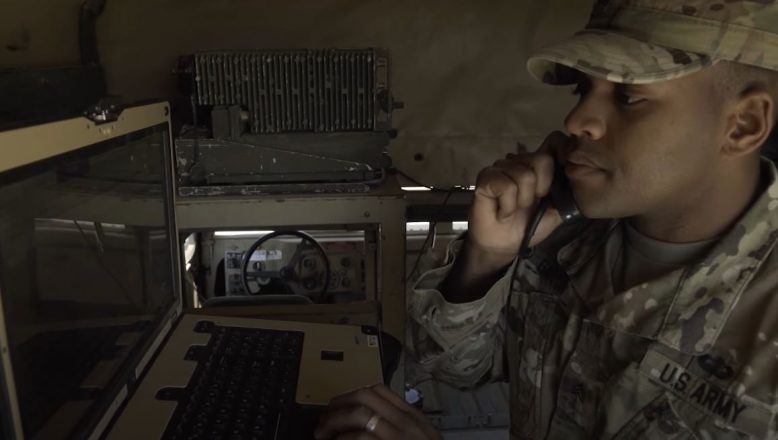
At the Army Fire Control Specialist (MOS 13J), we will receive our primary training and responsibility. An important part of the job is to maintain and operate communications systems, including radios, instrumentation systems, and overhead map displays. You will also be in charge of data collection capabilities for analysis purposes. They also transmit and relay communications to higher headquarters, divisions, corps, and forward units.
MOS 13J operates radios, radios, sound-powered telephone sets, long-range radio devices (LORAD), high-frequency radio systems (HFSS), and tactical satellite terminals. Some specialist duties include programming various types of radio systems, testing the system for capability and performance, maintaining electronic components in accordance with specifications, troubleshooting problems with equipment operation or status updates on antennae performance at any given time.
Work with primary tactical data system operations
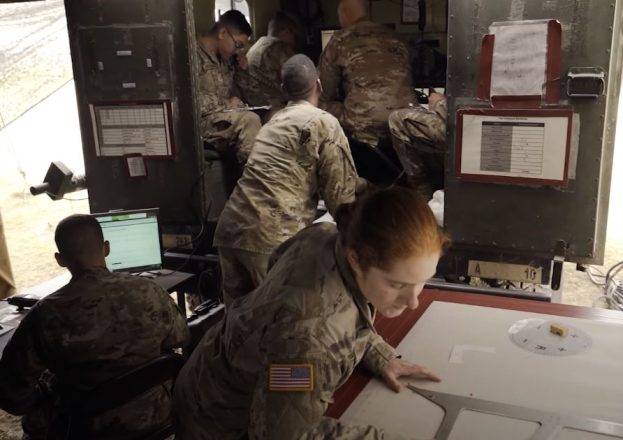
The Army operates a variety of large databases which store the information necessary for running the Army’s current inventory of weapons systems. Army Fire Control Specialists (MOS 13J) must learn how each database works before he/they can efficiently function as a part of an integrated fire control system team. MOS 13J works directly with primary tactical data systems. They are responsible for providing personnel with access to the tactical data system, which is used to direct the use of weapons, vehicles, and sensors in major combat operations. This includes updating systems when required, maintaining computer hardware and software configurations, testing the system for capability and performance, monitoring data flow in order to ensure requested information is being sent/received properly.
Army fire control specialists use sophisticated computer systems to calculate firing data for guns, rockets, and mortars when attacking targets. The computers consider such factors as weather conditions, terrain elevation, ammunition capabilities, and ballistic trajectory when determining when allied forces will be able to hit targets from given locations. Army fire control specialists also facilitate civilian law enforcement agencies by providing gunfire support for rioters or suspects by coordinating airstrikes or artillery firings on their location.
Manage databases
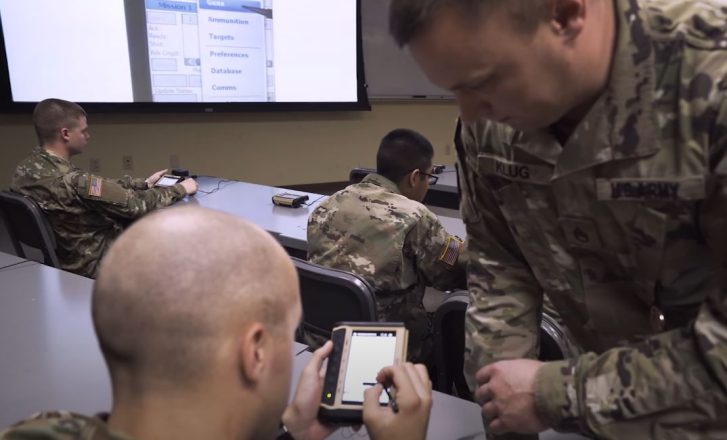
As a fire control specialist in this position, you provide information about your team members and areas under observation when missions are received from the higher-level headquarters. These may also include managing databases for uploaded data into tactical databases or other higher levels when needed when there is no one available to perform it on site.
Process fire missions
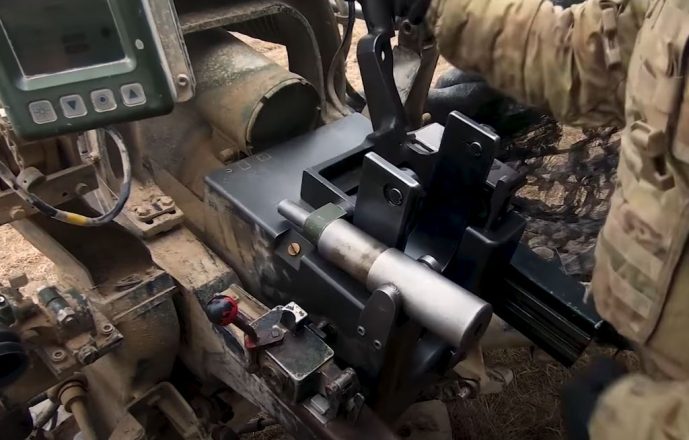
At the Army Fire Control Specialist (MOS 13J), we will get instructions from higher levels of command on where and when to deploy. You also get information about the enemy and their disposition. Fire Control Specialists (MOS 13J) plan and execute all firing operations and must be able to constantly adapt to changes in battle plans and constantly review and revise their procedures as necessary.
With your group, you will analyze the information and then give instructions to fire support or air support teams for putting out fires and dealing with enemy fire and any hostile forces that might interrupt your team’s progress. Not only do Fire Control Specialists (MOS 13J) process targets, they also analyze all forms of data they receive from observers, forward observers, direct fire planners, and gun systems. These analysts must be able to process large amounts of information quickly as well as analyze it effectively.
Salaries
As in the Army, the salary depends largely on the individual’s rank or time in service. Here is a list of Pay Grade, Rank, and Minimum Monthly Pay:
Private (E-1), Min Pay: $1785
Private Second Class (E-2), Min Pay: $2001
Private First Class (E-3), Min Pay: $2104
Specialist (E-4), Min Pay: $2330
Corporal (E-4), Min Pay: $2330
Sergeant (E-5), Min Pay: $2542
Staff Sergeant (E-6), Min Pay: $2775
Sergeant First Class (E-7), Min Pay: $3208
Master Sergeant (E-8), Min Pay: $4480
First Sergeant (E-8), Min Pay: $4480
Sergeant Major (E-9), Min Pay: $5473
Command Sergeant Major (E-9), Min Pay: $5473
Sergeant Major of the Army (E-9), Min Pay: $5473
Curious about military pay? Use our military pay calculator to estimate how much you could potentially earn in the Army.
Benefits
There are several benefits associated with MOS 37F, including medical insurance, paid sick time, vacation time, free housing and food, as well as tuition assistance:
Medical Insurance
The Army MOS 13J provides a wide variety of medical benefits, including mandatory health and accident coverage. Medical coverage is obtained through the special Program. The Program offers a wide variety of medical services at participating facilities where you can visit for routine checkups, routine hospitalization and inpatient care, and outpatient care. Service members’ dependents may qualify for coverage too!
For those in the medical field, comfort is a top priority during long shifts. That’s why many nurses opt to wear Crocs shoes. Aside from comfort, Crocs also offer slip-resistant soles, making them a practical choice for those who work in busy hospitals or clinics. Learn more about why nurses choose to wear Crocs shoes in our article on Why Do Nurses Wear Crocs.
Paid sick time
Active-duty soldiers and airmen receive paid sick leave in the service, which is vital for physical, mental, and emotional health. The Soldier may use up to three days of sick leave for minor illnesses such as colds, flu, and upset stomachs. Paid sick leave may be used concurrently with any other paid leave time the Soldier is entitled to receive in accordance with applicable state and federal laws.
Vacation Time
Sick leave and annual leave earned as a Soldier or as an Officer may be used as vacation (vacation leave). Vacation hours earned as a soldier may be used for any purpose the Soldier desires, except those military obligations that require immediate retention on active duty. Vacation hours earned as an officer cannot be carried over to the next calendar year.
Looking for some inspiration for your Hawaii vacation? Check out Hood MWR’s 50 Hawaii Packing List Ideas for what to wear and what to bring for a comfortable and stylish vacation in Hawaii. Whether you’re hitting the beach or exploring the island, this packing list has got you covered.
Free Housing and food
The Army MOS 13J provides a wide variety of benefits, including housing and food allowances. Soldiers are eligible for the Basic Allowance for Housing (BAH). The BAH is paid into your bank account each month and will cover rent, utilities, furniture rental, and other miscellaneous expenses related to quarters. This allowance can be used to help offset any housing expenses not covered by the BAH, such as mortgage or interest payments on loans secured by Army-owned real estate.
Tuition Assistance
The Army MOS 13J is eligible for Tuition Assistance (T.A.) to help pay for college courses. The Soldier must be enrolled in a degree or certificate program at a qualifying institution. The tuition assistance courses must lead to an associate’s or bachelor’s degree or another credential such as a vocational certificate that will make the Soldier more valuable to the Army and U.S. society in general or improve the Soldier’s performance of his or her duty assignments.
Clothing Allowance
All enlisted active-duty soldiers and airmen receive a clothing allowance to replace clothing that is lost or damaged while in the service. The Clothing Allowance (C.A.) is paid into your bank account each month and will cover any necessary replacement costs for uniforms, work clothes, etc.
Job Opportunities
There are various job opportunities associated with MOS 13J as follows: Broadband TelecomCenter Specialist, Computer Examiner, Emergency Manager, Facility Manager, Network Defender, or Software Tester.
If you are interested in becoming a construction worker, one of the factors to consider is the construction worker salary. This section provides insights into the average salary range, job requirements, and skills needed to succeed in this field. With this information, you can make an informed decision about whether this career would be a good fit for you.
Broadband TelecomCenter Specialist
The Broadband Telecom Center Specialist is responsible for configuring, operating, maintaining, and monitoring all of the Army’s communication sites. This includes testing, installing, configuring hardware and software to ensure that communication works smoothly with other organizations.
Computer Examiner
The Computer Examiner performs forensic examinations on information systems or devices when there appears to be evidence that someone may have used the system without authorization or when system data has been compromised. They are experts in operating systems, in particular in Windows-based computer systems, in order to obtain digital evidence from network activity logs or user files. They also understand how attackers use troubleshooting techniques like modifying settings (e.g., NIM, GPO), adding/changing processes, creating a new user account, or changing the hostname. The Computer Examiner uses this knowledge to determine whether or not data was modified or if it had been compromised in some way.
Emergency Manager
The emergency manager is responsible for generating reports containing analysis of crisis events and is responsible for coordinating emergency response efforts with other Federal and State agencies. They are also responsible for coordinating with Federal Emergency Management Agency (FEMA) when necessary. A typical emergency management activity includes developing a crisis plan in case of an inbound event, developing a response plan with a command structure for in-house fire, police, and rescue operations. In addition, they also make sure that preparedness plans are current and relevant to the needs of the Community.
Facility Manager
The Facility Manager will be responsible for making sure that all of the Public Works, Public Utilities, and Public Safety facilities are always in good working order. They will personally inspect each site at least once a week or more often if necessary. They will also provide inspections for all the other facilities besides public works (e.g., law enforcement sites, etc.) through his job as an emergency manager.
Network Defender
The Network Defender is responsible for protecting the Army’s computer network from different types of cyber-attacks that could potentially damage or compromise information stored on Army computers. This includes protecting the Army’s computer network from viruses, worms, Trojan horses, and spyware. They also use software designed to prevent network attackers from gaining access to the militaries or other networks.
Software Tester
The Software Tester is responsible for ensuring that all weapons systems are operating at peak performance. They test each weapon system out at least once every six months to make sure it works properly. They use various tools (e.g., simulators) to verify that everything is working correctly before live firing occurs. This ensures the safety of all soldiers on the battlefield during battle drills and exercises, as well as in combat situations should there be a serious malfunction of the weapon system.
As a software tester in the Army, you’ll have a critical role in ensuring the effectiveness and security of software applications for military use. It falls under the category of Army MOS List, so if you’re interested in exploring other job opportunities, take a look at the full list of Army jobs to find the right fit for you.
Summary of MOS 13J
Army Fire Control Specialist (MOS 13J) – The Army Fire Control Specialist operates and performs maintenance on the Army’s fire direction control systems, including radar, computers, and calculators. The Fire Control Specialist’s primary responsibility is to apply knowledge of fire control procedures, equipment, and weapon systems to solve tactical problems in the field. Duties include establishing observation posts, determining targets, selecting emplacement sites for artillery and mortars, locating coordinates for artillery missions, plotting firing data on maps and charts, operating communications equipment such as wireline or radio links with forwarding observers or gunships. Job opportunities for MOS 13J are expected to be in great demand in the foreseeable future.
FAQs
What is a 13J fire control specialist?
13J Fire Control Specialist is a military job title. A fire control specialist’s duties are in support of a military unit in the area of fire control, ranging from artillery to ground/air weapons and fire control systems, such as indirect laying and fuzing, aiming correction, and collimators. Fire control specialists may also assist in direct-laying of a battalion or even regimental fires with artillery weapons such as mortars or howitzers.
What Asvab score do you need for 13J?
An applicant for this position must have an average of 93 scores on the Field Artillery segment of the Armed Services Vocational Aptitude Battery (ASVAB) test to qualify for this job.
How much does a 13j make?
Pay depends on many factors, including the location, type of duty, and the time in grade. Generally, fire control specialists in the U.S. Army will make between $28,000 and $41,000 every year after taxes every year after taxes.
What does 13J do?
The Army Fire Control Specialist MOS is one of the most important artillery positions in the Army. This job is responsible for managing how artillery firepower is used in combat with computerized tracking systems that are part of a battery’s fire control system. 13J performs firing missions, along with damage assessments on targets. They also integrate information from other weapon systems to determine if they can be used to engage an enemy target without endangering friendly forces or civilians at risk in the area.
